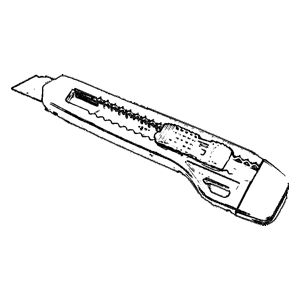
Boxcutter
A utility knife for interacting with package.json (or other json files)
Installation
Local (recommended)
npm install boxcutter --saveGlobal
sudo npm install boxcutter -gUsage
CLI
Walks up your directory tree looking for a package.json file. If it finds one, it will load it
and allow you to interact with it:
boxcutter <command> Commands: boxcutter get <key> get the value of <key> boxcutter set <key> <value> set <key> to <value> Options: --version Show version number [boolean] --stdin read json from stdin vs. from a file or package.json [default: false] --file the file to search up the directory path for [default: "package.json"] --indent indentation level Example:
> boxcutter get version1.0.0> boxcutter set version 1.0.1> boxcutter get version1.0.1>You may optionally use the --file flag to specify a json file other than package.json:
> boxcutter --file apidoc.json get nameBoxcutter> boxcutter --file apidoc.json set name "Boxcutter API Documentation"> boxcutter --file apidoc.json get nameBoxcutter API DocumentationYou may can also specify --stdin to read json from stdin instead of from a file:
> echo "{ \"foo\": \"bar\" }" | boxcutter --stdin get foobar> echo "{ \"foo\": \"bar\" }" | boxcutter --stdin set foo yakAPI
const Boxcutter = ;const boxcutter = Boxcutter; boxcutter;console;read( json )
boxcutter;Reads the given JSON into the instance.
load( filename )
boxcutter;Loads the given package.json. Can take a relative or absolute path.
get( key )
const value = boxcutter;Gets the given key. Uses Delver to retrieve the value, so you can use dot and bracket syntax:
const testScript = boxcutter;const firstKeyword = boxcutter;set( key, value )
boxcutter;Sets the given key to the value specified. Uses Delver to set the value, so you can use dot and bracket notation:
boxcutter;boxcutter;async save( filename[, options] )
await boxcutter;Saves the current settings to an output file. You can pass options to control the output, eg:
await boxcutter;serialize( [options] )
console;Serializes the current state to JSON with the given options.